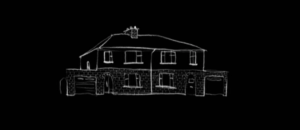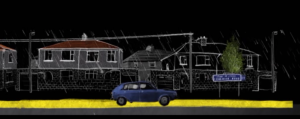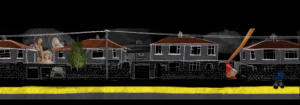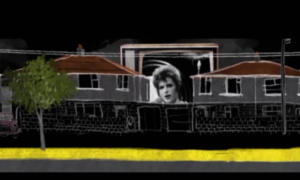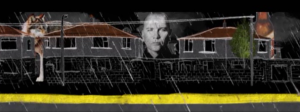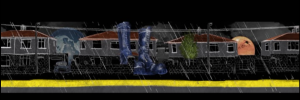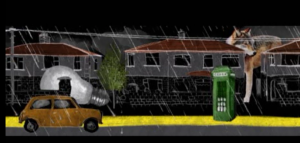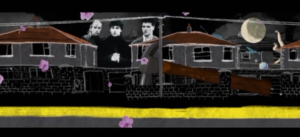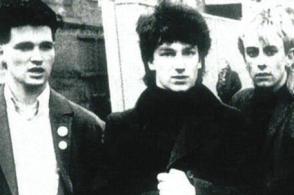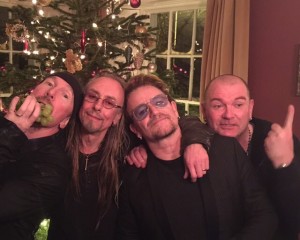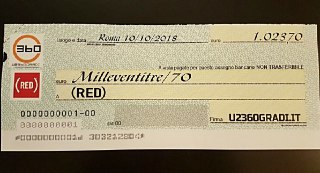Cedarwood Road – La narrazione di Gavin Friday
Cedarwood Road è fra le traccie più dure di Songs of Innocence‘. Dedicata all’amico d’infanzia Guggi, il brano è un viaggio nella difficile adolescenza di Bono, dove l’amicizia si è dimostrata più forte di qualsiasi altra cosa. Lui insieme a Guggi e Gavin Friday crearono un mondo tutto loro, chiamato ‘Lypton Village’, per sfuggire alla violenza quotidiana della Dublino degli anni ’70, ‘Paint the world you need to see, Sometimes fear is the only place we can call home’ (‘Dipingi il mondo che vuoi vedere, A volte la paura è l’unico luogo che possiamo chiamare casa’).
Durante l’iNNOCENCE + eXPERIENCE Tour Cedarwood Road viene portata sul palco direttamente attraverso lo schermo nel quale scorrono le immagini stilizzate della strada e delle case di Cedarwood Road, e nel quale Bono cammina, corre, urla e canta; Bono non ha mai smesso di lottare, correre, piangere e urlare in quella strada...‘You can’t return to where you’ve never left’ (‘Non puoi tornare in un luogo che non hai mai lasciato’).
Nel Dvd ‘U2 iNNOCENCE + eXPERIENCE LIVE IN PARIS’, rilasciato il 10 Giugno, tra i contenuti bonus troviamo la narrazione su Cedarwood Road di Gavin Friday! Narrazione a tratti commovente e che fà comprendere bene la durezza dell’adolescenza vissuta dai tre amici che alla fine loro sono riusciti comqune ad andare avanti …‘The heart that is broken is the heart that is open’ (‘Un cuore spezzato è un cuore che è aperto’).
Qui di seguito la traduzione in italiano e la trascrizione in inglese della narrazione di Gavin Friday.
Cedarwood Road – Una narrazione di Gavin Friday
Cedarwood Road è la strada nella quale sono cresciuto,
assieme ai miei due vecchi amici:
Guggi, che viveva al numero cinque
e Bono al numero dieci,
e me, Gavin Friday, il cattolico nel vicolo cieco
vivevo al numero 140.
In quei giorni, nella Dublino Nord dei primi anni ’70,
mi sembrava come se piovesse,
e piovesse, e piovesse 365 giorni all’anno.
Non c’era modo di uscirne.
Non c’era modo di uscirne.
L’unico modo era attraverso l’amicizia,
l’immaginazione, i sogni di 3 adolescenti.
La cabina telefonica e il ciliegio fuori casa di Guggi.
Negli anni 70 nessuno aveva il telefono,
e la cabina divenne una sorta di luogo d’incontro per noi.
Fuori da quella cabina ho conosciuto Guggi e Bono.
Non sò cosa ci abbia uniti:
il nostro senso dell’umorismo, la nostra visione del mondo,
l’amore per la musica,
la paura dei nostri padri.
Il mondo non ci calzava ,
così ne abbiamo creato uno nostro.
Ci davamo altri nomi, nomi che avevano senso solo per noi.
Non più cattolici, non più protestanti,
non più Plymouth Brethren,
non più figli dei nostri padri,
solo Gavin Friday, Guggi e Bono,
in un mondo chiamato Lypton Village.
Poi arrivò Bowie,
l’unico e solo Starman.
Lo vedemmo per la prima volta a Top Of The Pops nel 1972.
Per me era un faro e ci mostrava la strada.
Il mondo spento e grigio di Ballymun
diventò d’un tratto in technicolor
quando lo guardammo
attraverso i suoi occhi.
Il ‘Messia Lebbroso’ motivava
i giovani confusi
che poi divennero i Virgin Prunes e gli U2.
In quei giorni la violenza era quotidiana.
Ogni giorno ci prendevano a calci
per quello che pensavamo,
o per come apparivamo,
e per la musica che ci piaceva.
Bowie e il punk rock ci diedero le chiavi
per aprire la porta e andarcene.
Ce la facemmo, finchè eravamo insieme,
scrivendo canzoni e scoprendo chi eravamo davvero.
I Tre Amigos, o meglio, i Figliol Prodighi.
Non era facile crescere a Cedarwood Road,
ma, come dice la canzone,
‘Il cuore spezzato è un cuore aperto’…
Il cuore spezzato è un cuore aperto.
Cedarwood Road – A Gavin Friday narration
Cedarwood Road
this is the road i grew up on
along with my two old friends:
Guggi who lived in number five,
Bono in number ten,
and my good self, Gavin Friday,
the Catholic in the cul- de- sac,
i lived in number 140.
Back in those days, Northside, Dublin in the early ’70s,
it felt like it rained,
and it rained, and it rained
365 days of the year.
No way out of there
No way out of there
The only way was through the friendship,
the imagination, the dreams of three teenage boys.
The phone box and the cherry blossom tree
right outside Guggi‘s house.
In the ’70s nobody had phones,
so the phone box became
almost like a meeting place for us all.
It was outside that phone box
i first met Guggi and Bono.
I don’t know what it was
that pulled us together:
our sense of humour, the way we looked at the world,
the love of music,
the fear of our fathers.
We didn’t fit in,
so we made up our own world.
We gave each other names,
names that made sense only to us.
No longer Catholic, no longer Protestant,
no longer Plymouth Brethren,
no longer our father’s sons,
just Gavin Friday, Guggi, and Bono,
in a world called Lypton Village.
Then came Bowie, the one and only Starman.
We first saw him on Top Of The Pops early ‘72.
He was, for me, very much the guiding light,
and showed us all the way.
The dull and grey world of Ballymun
suddenly turned technicolour
as we saw the world
through his crazy eyes.
The Leper Messiah gave motivation
to the confused young fellas
that turned out to be The Virgin Prunes and U2.
In those days violence was a daily occurrence.
Every day getting your head kicked in
because of what you thought,
and how you looked,
and the music you liked,
Bowie and punk rock gave us the keys,
keys to open the door to get out of there,
we were making it up as we went along,
writing songs and finding out who we really were.
The Three Amigos, the Prodigal Sons, more like.
It wasn’t easy growing up on Cedarwood Road,
but us the song says,
‘The heart that is broken is the heart that is open’…
The heart that is broken is the heart that is open.
Fonte | Dvd ‘U2 iNNOCENCE + eXPERIENCE LIVE IN PARIS’
Trascrizione e traduzione a cura di Daniela @daniDpVox
Foto via noticierou2.blogspot.com e U2 , Screen dal Dvd ‘U2iNNOCENCE+eXPERIENCE LIVE IN PARIS’
Video via U2 Argentina dal ‘U2 iNNOCENCE + eXPERIENCE LIVE IN PARIS’
Tags: #U240, #U2NewsIT, Bono, Cedarwood Road, Gavin Friday, gavinfriday.com, GavinFridayNews, U2, U2ieTour, U2LiveInParis


